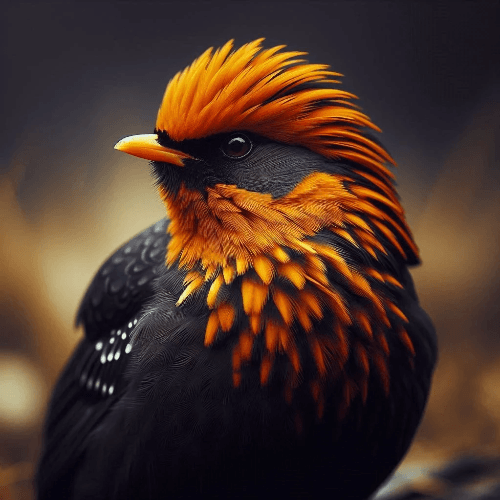As the days shorten and the air takes on that crisp edge of early autumn, our last poetry workshop, Cycles of Plenty, invited us to slow down and notice the quiet richness of the season. Facilitated by María Ortega García PTP, this gathering was shaped around the ancient symbols of harvest: corn, grain, and sunflower, each reminding us of abundance, gratitude, and the wisdom of natural cycles.
We were a small but far-reaching circle: eight voices from across Ireland, another joining from France, and one who called in all the way from Phoenix, Arizona. Though scattered across countries and time zones, we shared the same harvest imagery, the same poetic seeds, and a common desire to reflect on what has ripened in our lives.
At the beginning, there was a seed.
We began with a line that carried us into the heart of the workshop:
“With every deed you are sowing a seed, though the harvest you may not see.”
—Ella Wheeler Wilcox
This reminder of unseen harvests set the tone, urging us to consider how the fruits of our actions, intentions, and relationships sometimes lie beyond our immediate sight. To deepen this exploration, María guided us through poems that speak directly to the shifting season: “Rogue Corn” by Nikki Wallschlaeger, “Equinox” by Elizabeth Alexander, and “And Now It’s September” by Barbara Crooker.
These works opened doors into imagery both familiar and unexpected: the unruly stalk of corn growing where it shouldn’t, the delicate balance of light at the equinox, and the bittersweet tenderness of September’s waning beauty.
The harvest of our own voices
As always, the most profound part of the workshop was the poetry that emerged from within the group. Each participant turned the symbols of harvest toward their own experience, toward memory, loss, renewal, or gratitude.
One striking piece shared that evening by our one of the attendees, Kevin, was Migration, a poem that blended ornithological detail with sharp cultural critique. It drew upon the robin’s familiar journey and then stretched across continents and species to land in an unexpected, politically charged register.
Migration
Ornithologically speaking, "Turdidae"
There are many of the family, and genus.
The robin with its red breast,
Known as "Turdus Migratorious".
A great traveler, leaving in the Autumn,
Returning in the Spring.
Then there is another, the Tibetan,
A blackbird of the same genus,
It wears a dark suit, a bit of orange
about the head. It is known as
"Turdus Maximus", with its rapid
grating notes, squeaks, wheezes, and caws.
His mutterings are unpleasant,
His intentions are unkind,
He is hated. And with him have come
In vast numbers, those of his kind.
Most of us wish them to be gone.
There is a Turdus Maximus in Washington DC.

Here, migration is not only the seasonal journey of birds but also a lens for looking at power, disruption, and belonging. The juxtaposition of scientific taxonomy with raw emotion created a tension that stayed with us long after the poem ended.
Along with Migration, we were gifted with two luminous poems by Ger Campbell, each holding its own fierce and tender harvest of voice.
The Wild Me
Ger Campbell
I dance barefoot on tabletops,
spilling wine like blessings,
laughing too loud,
too long,
too wrong for polite ears.
I braid nettles into my hair,
paint my lips with blackberry juice,
and call it glamour.
I sing to crows at the crossroads,
argue with the moon,
flirt with thunder.
The ordinary trembles
when I pass by –
I leave it dizzy,
half undone.
I wear my madness
like a crown of sparks,
eccentric, electric,
refusing to dim
for anyone’s comfort.
If you would tame me
You better bring ropes
made of lightning.
If you would love me,
learn to run barefoot
through the storm.
And Now It’s September
Ger Campbell
And now its September –
the air carries a sharper edge,
apples blush in the orchard,
blackberries ink the hedges
with purple secrets.
The light leans lower,
a golden slant that makes
every shadow stretch like memory.
Swallows and House Martins rehearse farewells,
their wings stitching
a restless script across the sky.
And I –
I gather the days like fallen leaves,
turning each one over,
wondering what to keep,
what to let drift
back to the earth.
For September teaches this:
All endings are beginnings
wearing a russet coat,
and every leaf that falls
is an invitation
to loosen,
to trust
to change.
These poems shimmered in different ways, one wild and untamed, charged with stormlight; the other contemplative, steeped in the quiet lessons of September. Together, they reflected the spirit of the workshop itself: reflective, celebratory and tender.
Gathering the cornucopia
By the close of the workshop, what we had harvested together was more than words. We carried with us a renewed sense of how poetry can act as both mirror and vessel, holding our abundance and our release, our gratitude and our grief. The season of harvest is never just about what we gather; it is also about what we let go, and what we trust will come again in spring.
As the earth leans further into autumn, the voices from Cycles of Plenty remind us that our own lives move in seasons too. And within each cycle, there is always something worth gathering, something worth honoring, and something waiting quietly to be sown.
An Invitation
If you feel called to explore your own inner seasons, we would love to welcome you into
future workshop. Whether you are a practiced poet or simply someone who enjoys words, these gatherings create a space to write, listen, and connect across distances. Bring your curiosity, your stories, and your open heart, the circle is always richer with one more voice.
